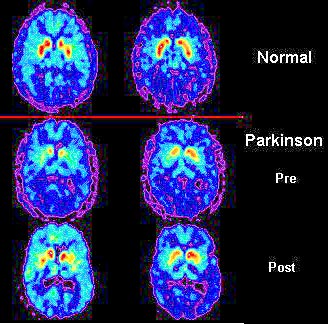VIDEO: Dr. Richard Newman Discusses Parkinson’s
By First Choice Medical Group // December 29, 2013
FIRST CHOICE MEDICAL GROUP
ABOVE VIDEO: Dr. Richard Newman of First Choice Medical Group discusses Parkinson’s Disease symptoms and signs, which may vary from person to person.
Early signs of Parkinson’s Disease may be mild and may go unnoticed. Symptoms often begin on one side of the body and usually remain worse on that side, even after symptoms begin to affect both sides.
PARKINSON’S SIGNS AND SYMPTOMS MAY INCLUDE:
• Tremor. Your tremor, or shaking, usually begins in your limb, often your hand or fingers. You may notice a back-and-forth rubbing of your thumb and forefinger, known as a pill-rolling tremor. One characteristic of Parkinson’s disease is tremor of your hand when it is relaxed (at rest).

• Slowed movement (bradykinesia). Over time, Parkinson’s disease may reduce your ability to move and slow your movement. This may make simple tasks difficult and time-consuming. Your steps may become shorter when you walk, or you may find it difficult to get out of a chair. Also, your feet may stick to the floor as you try to walk, making it difficult to move.
• Rigid muscles. Muscle stiffness may occur in any parts of your body. The stiff muscles can limit your range of motion and cause you pain.
• Impaired posture and balance. Your posture may have become stooped, or you may have balance problems as a result of Parkinson’s disease.
• Loss of automatic movements. In Parkinson’s disease, you may have a decreased ability to perform unconscious movements, including blinking, smiling or swinging your arms when you walk. You may no longer gesture when talking.
• Speech changes. You often may have speech problems as a result of Parkinson’s disease. You may speak softly, quickly, slur or hesitate before talking. Your speech may be more of a monotone, rather than with the usual inflections.
• Writing changes. Writing may appear small and become difficult.
ABOUT DR. RICHARD NEWMAN
With more than 25 years’ experience in Neurology, First Choice medical Group’s Dr. Richard Newman is Fellowship trained by the National Institute of Health in Movement Disorders.

A graduate of SUNY, Buffalo School of Medicine in New York, Dr. Newman completed his internship in Internal Medicine at Millard Fillmore Hospital in Buffalo, New York. He is a Diplomate of the American Board of Psychiatry and Neurology, a Fellow of the American Academy of Neurology, and a member of the American Medical Association and Florida Medical Association.
Dr. Newman specializes in the treatment of balance and movement challenges relating to metabolic muscle and brain disorders, spine disorders and injuries, Tourette Syndrome, Alzheimer’s Disease, Lou Gehrig’s Disease, Dystonia and Parkinson’s Disease, among others; stroke management; vertigo; autism and Attention Deficit Disorder.
CLICK HERE FOR MORE INFORMATION ABOUT DR. RICHARD NEWMAN AND FIRST CHOICE MEDICAL GROUP











